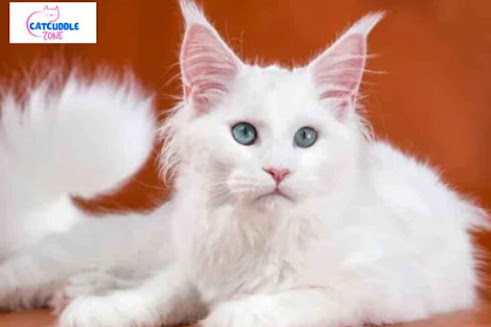Why Is My Cat Squinting? Causes, Symptoms and Treatments
Have you noticed your cat squinting lately? While it might look cute or even playful, frequent or prolonged squinting can be a sign that something’s wrong. Cats are excellent at hiding discomfort, so even a small behavioral change like squinting should be taken seriously. In this post, we’ll explore the most common causes of cat squinting, how to recognize symptoms, and what treatments may be needed to help your feline friend feel better.
For a full guide to feline behavior and care, check out our resources at Cat Cuddle Zone.
Is Squinting Normal in Cats?
Occasional squinting may simply mean your cat is content, relaxed, or reacting to bright light. However, if your cat is frequently or consistently squinting, especially with one eye more than the other, this could be a sign of discomfort or an underlying medical issue.
Key Signs That Squinting May Be a Problem:
-
Frequent or one-sided squinting
-
Eye discharge or watering
-
Redness or swelling around the eye
-
Sensitivity to light
-
Rubbing or pawing at the eye
-
Loss of appetite or behavior changes
Common Causes of Cat Squinting
1. Eye Infection (Conjunctivitis)
One of the most common causes, conjunctivitis (or “pink eye”), causes redness, swelling, and discharge. Your cat may squint or close the affected eye completely. This condition can be viral, bacterial, or allergic.
2. Foreign Object or Trauma
A small particle like dust or a scratch from another animal can irritate the eye. If you suspect trauma or notice sudden squinting, it’s best to consult a vet quickly to avoid complications.
3. Corneal Ulcer
A corneal ulcer is a painful injury to the eye’s surface. Signs include squinting, cloudiness, or excessive tearing. If untreated, it can lead to vision loss.
4. Uveitis
This inflammation inside the eye can cause pain and sensitivity to light. Uveitis can be linked to infections, autoimmune issues, or other systemic diseases.
5. Glaucoma
This serious condition causes increased pressure inside the eye. Symptoms include squinting, enlarged pupils, and cloudiness. Glaucoma is a medical emergency and requires immediate attention.
6. Dry Eye (Keratoconjunctivitis Sicca)
If your cat’s eyes aren’t producing enough tears, the eye may become dry and irritated, causing squinting. This can be a chronic issue and needs ongoing treatment.
How Is It Diagnosed?
Your veterinarian will conduct an eye exam, which may include:
-
Fluorescein staining to check for ulcers
-
Tonometry to measure eye pressure
-
Tear production tests
-
Swabbing for infection
-
A full health check to rule out systemic issues
Treatments for Cat Squinting
Treatment depends on the cause but may include:
-
Antibiotic or antiviral eye drops for infections
-
Anti-inflammatory medication to reduce pain and swelling
-
Surgery or procedures in severe trauma or glaucoma cases
-
Artificial tears or lubricants for dry eye
-
Elizabethan collar (E-collar) to prevent scratching or further injury
Always follow your vet’s instructions and never use human eye drops unless specifically approved.
Home Care Tips for Squinting Cats
While waiting for a vet appointment:
-
Keep your cat indoors to avoid further irritation.
-
Use a clean, damp cloth to gently wipe away discharge.
-
Reduce light exposure in case of sensitivity.
-
Don’t attempt to pry open the eye or apply over-the-counter drops without vet approval.
When to See the Vet
You should contact your vet if:
-
Squinting lasts more than a day
-
There’s any discharge, redness, or swelling
-
Your cat is in visible discomfort
-
The eye looks cloudy or the pupil size changes
Final Thoughts
Your cat’s eyes are delicate and vital to their well-being. While some causes of squinting are minor, others can lead to long-term issues if not treated. Early detection is key. If you ever feel uncertain, it’s always better to consult a vet.
For more expert tips on cat health, behavior, and comfort, visit Cat Cuddle Zone — your cozy guide to a happier feline life.




Comments
Post a Comment